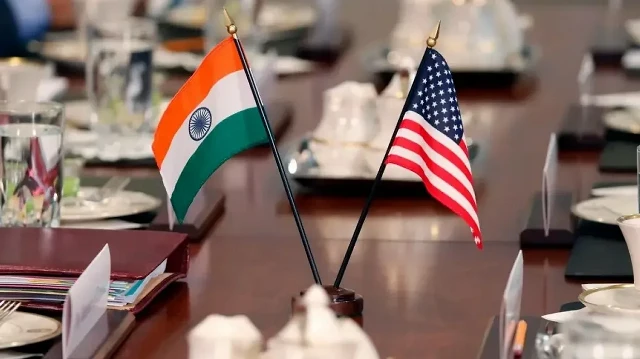
‘Unfortunate that certain important countries have chosen to forego the agenda of sustainability,’ says Indian Commerce Minister Piyush Goyal
- Indian exports to US are subject to 50% tariffs as both sides failed to reach a deal, as well as New Delhi’s purchase of Russian oil
New Delhi on Tuesday said it is negotiating a bilateral trade agreement with the US, which has imposed 50% tariffs on goods from India, including a 25% penalty for its refusal to stop buying oil from Russia.
"... We are in dialogue with them (US) for a bilateral trade agreement," Commerce and Industry Minister Piyush Goyal told an event in the capital New Delhi.
US President Donald Trump’s 50% tariffs on imports from India took effect late last month, partly as a punishment for importing Russian oil. Trump had earlier imposed 25% baseline tariff on Indian goods, after New Delhi and Washington failed to reach a trade deal.
Goyal said it was "unfortunate that certain important players, certain important countries, have chosen to forego the agenda of sustainability ... ."
India has termed the US surcharge “unfair, unjustified and unreasonable.”
The Indian official's remarks came a day after the US president on Monday once again criticized the country's trade relationship with India, calling it a "totally one-sided disaster." He also said that India had now “offered to cut their Tariffs to nothing, but it’s getting late. They should have done so years ago.”
“What few people understand is that we do very little business with India, but they do a tremendous amount of business with us. In other words, they sell us massive amounts of goods, their biggest ‘client,’ but we sell them very little - Until now a totally one sided relationship, and it has been for many decades,”Trump wrote on Truth Social.
“The reason is that India has charged us, until now, such high Tariffs, the most of any country, that our businesses are unable to sell into India. It has been a totally one sided disaster! Also, India buys most of its oil and military products from Russia, very little from the U.S.”







